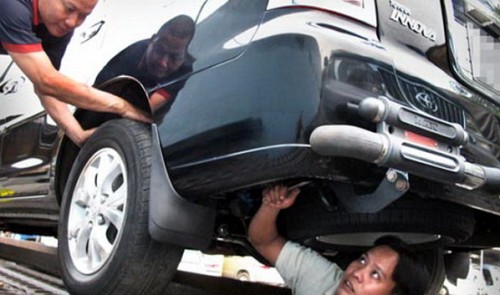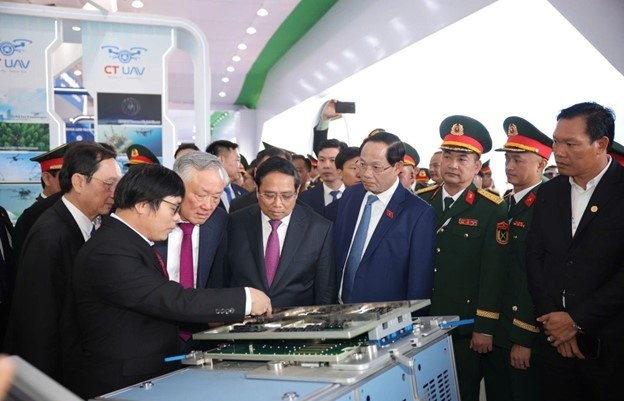Toyota could cease making cars in Vietnam on coming tax cut: President

Toyota Motor Vietnam could cease making cars in Vietnam and import from other ASEAN countries to enjoy the zero import duty in 2018, President Yoshihisa Maruta said at a meeting to announce the company’s operation plans for 2015 on Thursday.
Toyota Motor Vietnam currently has to import most of the spare parts for its production in the Southeast Asian country, and there will soon come the day when importing a complete car from Thailand is cheaper than assemble it in Vietnam, Maruta said.
The Japanese president, who is also chairman of the Vietnam Automobile Manufacturers' Association (VAMA), said the year 2018 will be a big issue for the carmaking industry.
Passenger cars with fewer than 24 seats, 40 percent of whose parts are manufactured by ASEAN countries, are currently subject to a 50 percent import duty. The rate will be lowered to zero in 2018, under the Common Effective Preferential Tariff agreement.
ASEAN is a ten-member bloc which includes such Southeast Asian countries as Indonesia, Malaysia, the Philippines, Singapore, Thailand, Brunei, Cambodia, Laos, Myanmar, and Vietnam.
Industry insiders say it is more profitable to sell imported cars than those that are domestically assembled.
Last year the Vietnamese government approved the planning for the automaker industry between 2015 and 2020, with a vision to 2030.
But there are no specific policies included in the planning, the Toyota Motor Vietnam chief executive complained, saying this left the company “being unable to know what to do next.”
The carmaker is thus waiting for an action from the government to have the answer as to whether it will stop making cars in Vietnam or not.
Without a support from the government, the domestic carmakers will surely fall into trouble, he warned.
The businesses under the VAMA will then have to import complete cars for sale rather than assembling domestically, he added.
Toyota Vietnam sold 41,205 cars in 2014, a 24 percent increase from a year earlier, according to data released at the Thursday meeting. Of these, 34,778 vehicles are domestically assembled.
The company accounted for 31 percent of the total sales among the VAMA businesses.
Toyota Motor Corp meanwhile has plans to spend some US$1.3 billion two build a new plant in China in 2018, and another in Mexico a year later, AFP reported on Friday, citing reports by the Japanese business daily Nikkei and Japan’s public broadcaster NHK.
The Chinese factory will be built in Guangzhou, whereas the Mexico plant will be located in the state of Guanajuato, according to the Nikkei.
The move is aimed at boosting the world’s largest carmaker’s production capacity by some 300,000 units a year in a bid to better compete with global rivals, according to AFP.
What the stars mean:
★ Poor ★ ★ Promising ★★★ Good ★★★★ Very good ★★★★★ Exceptional
Latest News
More News
- Limitations abound for domestic EV carbon credits (December 19, 2024 | 15:00)
- Businesses pivotal in offsetting carbon measures in Vietnam (December 19, 2024 | 13:00)
- Coordination key for circular economy (December 19, 2024 | 10:56)
- Vietnam’s first logistics laboratory established (December 19, 2024 | 08:00)
- Masan Consumer Holdings honoured with consecutive "Great Place To Work" certifications (December 18, 2024 | 16:55)
- SABECO’s research facility a dream for its brewmasters (December 17, 2024 | 10:30)
- Digital twins reshaping Vietnam's logistics and supply chain landscape (December 17, 2024 | 09:34)
- Enterprises awarded for pioneering innovation to attract talent (December 16, 2024 | 16:43)
- Testing future predicted for technology startups in Vietnam (December 14, 2024 | 15:00)
- Vincom Retail named among Forbes Vietnam's top 25 leading brands (December 14, 2024 | 11:58)















 Mobile Version
Mobile Version